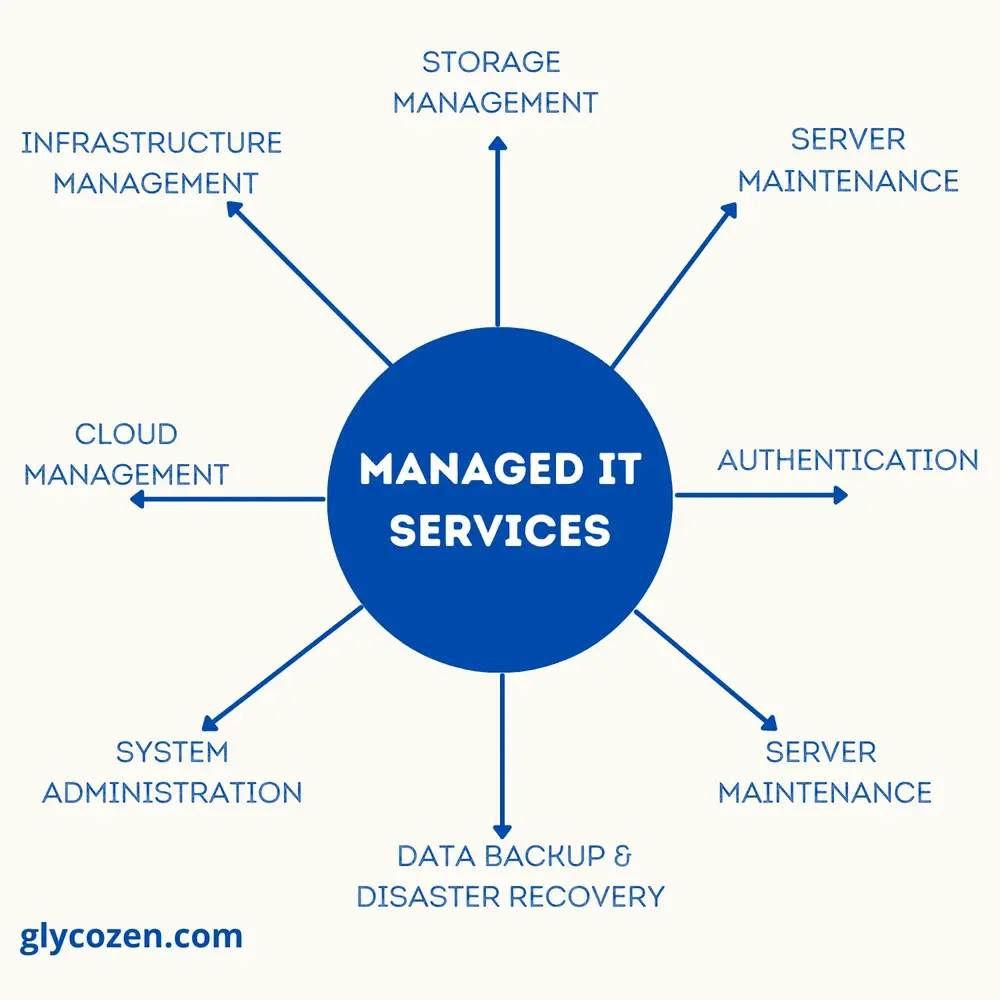Most internal IT services aren’t suited to keep up with the speed of innovation, and technology has gone a long way since the days of break/fix IT. As a result, many businesses IT departments are reactive rather than proactive, and their systems cannot keep up with the needs of a developing firm in the digital age.
If you’ve ever dismissed the concept of outsourcing assistance to a third-party source because you believe your present IT infrastructure is adequate or because of cost concerns, now is the time to rethink. Managed services provide various advantages, especially if you’re utilizing a system like Microsoft Dynamics 365.
What is Managed Services?
The process of outsourcing business administration and management functions to a third party is referred to as managed services. This term isn’t limited to IT because managed services can encompass anything from supply chain management to marketing strategy to contact centre operations. The most generally referred to as a managed service is managed IT services, which will be the subject of this article.

In recent years, the demand for managed services has exploded. In 2019, the worldwide managed services market was worth $185.98 billion, with a forecast of $356.24 billion by 2025.
8 Reasons to Partner With an MSP
1. Focus on core Objective
As your company expands, so will your IT requirements. Your IT team may be able to handle some of the increased workloads. Still, they will most likely become overwhelmed and unable to scale by your company’s needs, forcing you to assign additional responsibilities to employees who aren’t on the IT team, which can divert attention away from core business goals.
One of the advantages of managed services is that it allows you to fill in gaps as needed, allowing your workers to focus on the duties they were paid to accomplish. A true managed services partner will provide you with a flexible service model that allows you to choose the degree of care you need, whether it’s just keeping the lights on or outsourcing your whole IT department.
2. Get the Expertise You Need
New technology brings with it new difficulties, which your old IT team may not be prepared to address. Then there’s the management issue: Whether your systems are in the cloud or on-premise, you’ll need a lot of resources to support your business solutions, which might be a problem if your IT staff is truly just one person.
Both of these issues may be rectified by adding additional team members, but the expense of acquiring and training new staff might be prohibitive – training alone costs over $1,886 per employee. In addition, there is a persistent IT skills deficit to cope with.
One of the most appealing aspects of the managed services model is that it allows you to engage a whole team of IT experts for a fixed monthly fee. Some Managed Services Providers (MSPs) even adopt a shared approach to managed services, which means you can add or remove professionals from your managed services team as needed based on the needs of each project. Technical, functional, architectural, and training consultants are among the experts that can help you maintain your systems up and running while also maximizing their potential.
3. keep cost low
One of the evident advantages of managed services in terms of cost is that it reduces labour expenses and removes the cost of hiring and training new IT professionals. The potential to scale talents is quite appealing, and most MSPs provide a hybrid model of onshore and offshore resources, which lowers the average effective rate and expands your resource pool.
You’ll never have to worry about unexpected service fees since you sign a service-level agreement that’s tailored to your organization’s specific needs. This will allow your company to transition from a capital expenditure to an operational expense model. For further savings, look for an MSP with a strong strategic connection with your solutions or cloud provider; they’ll be able to escalate and advocate on your behalf, allowing you to reinvest the money you save back into your company.
4. Scale up or Down as Needed
As your technological requirements change over time, you’ll need to scale up or down your system to suit them. Fortunately, systems like Dynamics 365 are built to be very scalable, but you may still need support. You won’t have to worry about system downtime since MSPs can adapt to variations in demand in real-time.
To get the most value and scalability out of your collaboration, seek an MSP that has hundreds of consultants accessible (and can bring on more as required) and offers advanced services like proactive monitoring, updated services release management, reporting, and more.
5. Receive Support Whenever You Need It
Most MSPs offer 24/7 flexibility, on-call alternatives, and weekend assistance (though it’s essential to remember that these are typically given as costed extras), you’ll never have to worry about availability with an MSP. When looking for the ideal MSP, seek a worldwide firm that can handle several time zones and provides round-the-clock assistance, so you can be confident that you’ll get help whenever you need it.
6. Avoid Expensive Downtime
Another advantage of managed services is that MSPs take a proactive approach to maintenance rather than waiting for anything to go wrong. Remote monitoring and management are used by MSPs to discover, diagnose, and fix possible problems before they become a problem. It’s simple to see how outsourcing to an MSP pays for itself, given that network outage may cost firms up to $5,600 per minute – well over $300,000 per hour.
7. Gain a Reliable Point of Contact
Instead of working with a shifting cast of characters, you’ll receive a dedicated team that understands your company and your business solutions inside and out, managed by a single customer success manager, when you partner with an MSP (CSM). Your CSM will serve as a dependable single point of contact for you and your vendors, acting as a go-between and triaging any issues on your behalf. There’s a documented escalation route and a secondary contact ready to step in if your CSM is unavailable for whatever reason (after all, everyone needs a vacation), so you’ll always have someone on your side.
8. Get Support for Security & Compliance
On a daily basis, software systems like Dynamics 365 acquire and analyse an exponential quantity of data in order to benefit your organisation – data that must be kept safe and compatible with industry requirements. Unfortunately, MSPs cannot handle corporate compliance on your behalf (though what a wonderful world it would be if they could! ), but they can work with your legal team to determine which legislation it should be aware of so that it can take safeguards to guarantee that your systems comply.









